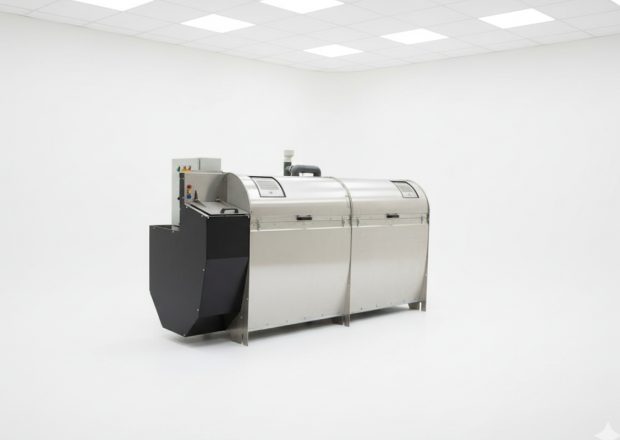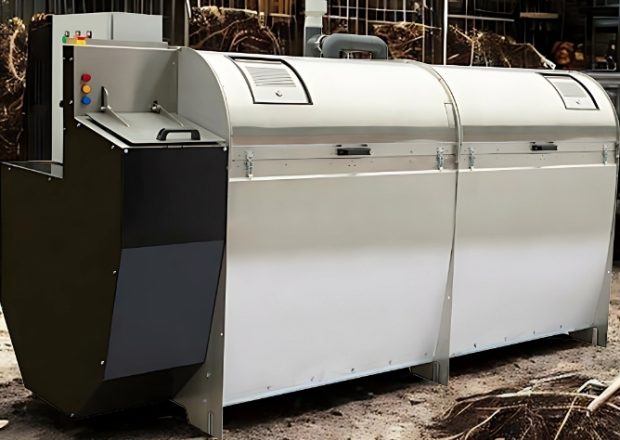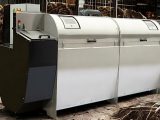

Yöntem 100 Composting Machine
Transformation at Source, Big Impact on a Small Scale
The Yöntem 100 Composting Machine offers an eco-friendly and efficient solution for managing organic waste in small-scale businesses, cafeterias, schools, and campuses by converting up to 100 liters of biodegradable waste into compost daily. Organic materials such as vegetable and fruit scraps, food waste, and tea/coffee grounds are quickly and effectively transformed into nutrient-rich compost thanks to the device’s advanced system. This supports both the Zero Waste goals and the production of soil-enriching resources.
⚙️ Working Principle
Yöntem 100 operates on a fully automatic system. It begins by physically shredding waste in its built-in shredder chamber. The shredded waste is then transferred into the composting chamber, where it undergoes biological decomposition through microorganisms in a controlled oxygenated environment. During this process, the waste is periodically mixed and aerated with automatic rotating arms to ensure uniform breakdown. In the final stage, the partially decomposed material is transferred to a maturation chamber to rest and develop into high-quality, balanced compost.
🌿 Why Choose Yöntem 100?
While natural decomposition of biodegradable waste may take weeks or even months, Yöntem 100 significantly accelerates this process, producing quality compost in just 2 to 3 weeks. It allows for on-site separation of organic waste, which reduces total waste volume and simplifies the management of other recyclable materials. Thanks to its compact design, it fits easily into confined spaces, and its low energy consumption ensures minimal operating costs.
🪴 Benefits of Compost
Compost produced by Yöntem 100 provides meaningful environmental benefits by recycling organic waste into valuable material. It improves soil structure by enhancing aggregation, promotes aeration, and increases moisture retention. Unlike synthetic fertilizers that release nutrients rapidly, this compost delivers slow-release nutrients that support natural plant growth. It also neutralizes soil toxins, stabilizes heavy metals into non-absorbable forms, and balances pH levels—creating a more flexible and fertile agricultural environment.









